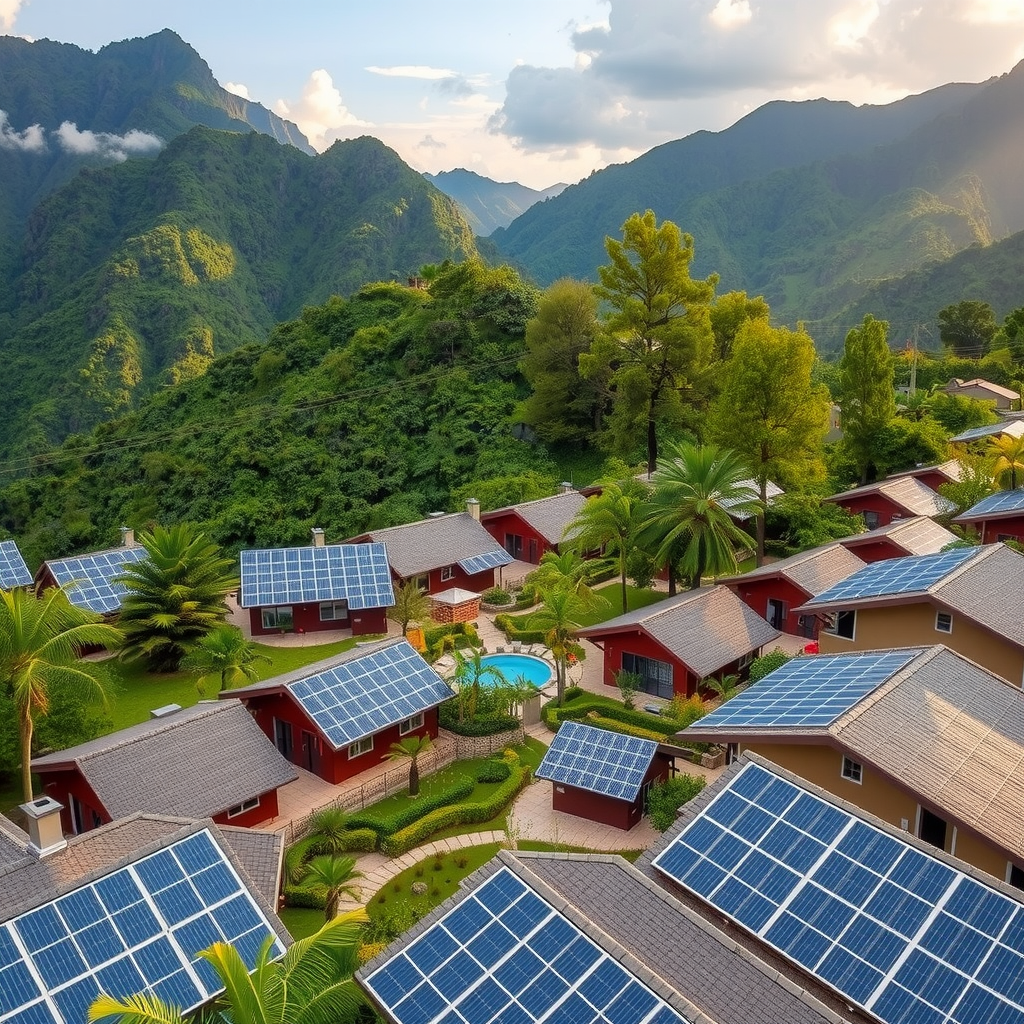The travel industry is experiencing a significant transformation as sustainable tourism practices continue to gain unprecedented momentum throughout 2024. Modern travelers are increasingly conscious of their environmental impact, leading to a fundamental shift in how destinations, accommodations, and tour operators approach their business models.
This growing awareness has sparked a revolution in the tourism sector, with eco-conscious travel becoming not just a trend, but a fundamental expectation among discerning travelers worldwide. From carbon-neutral flights to zero-waste accommodations, the industry is responding with innovative solutions that balance exploration with environmental stewardship.
The Rise of Eco-Conscious Travelers
Recent studies indicate that over 73% of global travelers now consider sustainability a crucial factor when planning their trips. This demographic shift represents a fundamental change in consumer behavior, with millennials and Gen Z travelers leading the charge toward more responsible tourism practices.
"Travelers today are not just seeking beautiful destinations; they want to ensure their journeys contribute positively to local communities and preserve natural environments for future generations."
Travel agencies and tour operators are responding by curating specialized eco-tourism packages that emphasize minimal environmental impact while maximizing cultural immersion and authentic experiences. These offerings include wildlife conservation tours, community-based tourism initiatives, and carbon-offset travel programs.
Environmentally Responsible Destinations Leading the Way
Destinations worldwide are implementing comprehensive sustainability programs to attract environmentally conscious travelers. Countries like Costa Rica, New Zealand, and Norway have established themselves as pioneers in sustainable tourism, setting benchmarks for others to follow.
Key Initiatives Transforming Destinations
Protected Natural Areas
Expansion of national parks and marine reserves with strict visitor management systems to preserve biodiversity and natural habitats.
Waste Reduction Programs
Implementation of comprehensive recycling systems and plastic-free initiatives across tourist areas and accommodations.
Renewable Energy Adoption
Transition to solar, wind, and hydroelectric power sources for hotels, resorts, and tourism infrastructure.
Community Engagement
Programs ensuring local communities benefit directly from tourism through employment, fair trade, and cultural preservation initiatives.
These initiatives demonstrate that sustainable tourism is not merely about environmental protection, but encompasses social responsibility and economic viability for local populations. Destinations implementing these practices are seeing increased visitor satisfaction and longer-term tourism sustainability.
Sustainable Accommodations Setting New Standards
The hospitality sector has emerged as a leader in sustainable tourism practices, with hotels and resorts worldwide implementing comprehensive environmental programs. From boutique eco-lodges to major international hotel chains, the industry is embracing green certifications and sustainable operations.
Leading accommodations are incorporating innovative technologies and practices including rainwater harvesting systems, greywater recycling, organic gardens supplying on-site restaurants, and comprehensive energy management systems. Many properties have achieved carbon-neutral status through a combination of renewable energy use and verified carbon offset programs.
Green Certification Programs
Recognized certification programs helping travelers identify truly sustainable accommodations:
- LEED Certification- Leadership in Energy and Environmental Design standards for building sustainability
- Green Key Global- International eco-label for tourism facilities meeting strict environmental criteria
- EarthCheck- Scientific benchmarking and certification program for sustainable tourism
- Green Globe- Worldwide certification for sustainable travel and tourism operations
Travel agencies are increasingly partnering with certified sustainable accommodations, making it easier for eco-conscious travelers to book stays that align with their values. This shift is driving broader industry change as more properties seek certification to remain competitive in the evolving market.
Conservation-Focused Travel Experiences
A growing segment of travelers is seeking experiences that actively contribute to conservation efforts. Wildlife conservation tours, marine protection programs, and reforestation projects are becoming popular travel activities, allowing visitors to make tangible positive impacts during their journeys.
Tour operators are developing specialized programs where travelers can participate in meaningful conservation work, from coral reef restoration in tropical destinations to wildlife monitoring in African safaris. These experiences provide educational value while supporting critical environmental initiatives.
Supporting Local Communities Through Tourism
Sustainable tourism extends beyond environmental concerns to encompass social responsibility and economic benefits for local communities. Community-based tourism initiatives ensure that tourism revenue directly supports local populations, preserving cultural heritage while providing economic opportunities.
Travelers are increasingly choosing experiences that include homestays with local families, purchasing handicrafts directly from artisans, and dining at locally-owned restaurants. These choices create meaningful cultural exchanges while ensuring tourism benefits reach the communities that host visitors.
Impact Statistics
of travelers prefer supporting local businesses
willing to pay more for sustainable options
increase in eco-tourism bookings in 2024
The Future of Sustainable Travel
As we progress through 2024, the momentum behind sustainable tourism shows no signs of slowing. Industry experts predict that environmental responsibility will become a standard expectation rather than a premium offering, fundamentally transforming how travel is planned, marketed, and experienced.
Technology is playing an increasingly important role, with carbon footprint calculators, sustainable destination guides, and eco-certification verification tools becoming standard features in travel booking platforms. Artificial intelligence is being employed to optimize travel routes for minimal environmental impact while maintaining traveler satisfaction.
The travel industry's commitment to sustainability represents more than a response to consumer demand—it reflects a genuine recognition that the long-term viability of tourism depends on preserving the natural and cultural resources that make destinations attractive. By embracing sustainable practices, the industry is ensuring that future generations can continue to explore and appreciate our planet's diverse wonders.
Join the Sustainable Travel Movement
Every journey is an opportunity to make a positive impact. Choose eco-conscious destinations, support local communities, and travel responsibly to help preserve our planet's beauty for generations to come.



